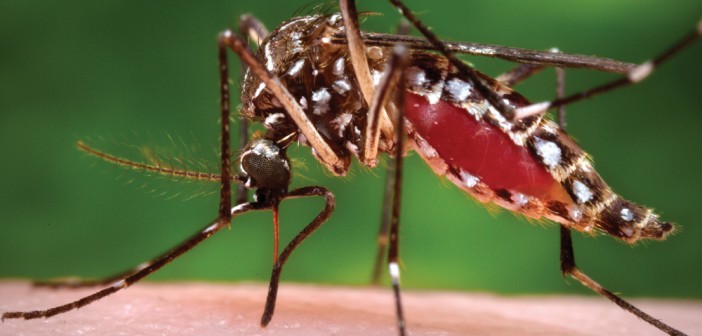Most Michigan residents are familiar with the mosquitoes that we often encounter during our summer months. Further, the current focus on Zika virus and its association to babies born with severe brain defects has captured international attention.
So, what you’re likely wondering, and the main question I have been getting from friends and family, is: Will the Zika virus come to Michigan?
Zika has not been spread by mosquitoes in the continental U.S. yet, and in Michigan, we do not have the species of mosquito (Aedes aegypti or albopictus) that transmits the virus. That said, confirmed cases of Zika have occurred in travelers returning to the U.S. which means that a person became infected during travel to an area with active Zika transmission. Zika virus can also be sexually transmitted by a man to his partners. And importantly, Zika virus can be passed from a pregnant woman to her baby during pregnancy.
Zika virus in general is a mild disease and the most common symptoms are fever, rash, joint pain, conjunctivitis (red eyes), achiness and headache. Many people infected with Zika won’t have symptoms or will only have mild symptoms, usually don’t get sick enough to go to the hospital, and they rarely die.
The main concern is for women who are pregnant, as it is during this time that birth defects can occur, particularly in brain development. If the brain does not develop normally, the infant’s skull may be smaller than usual, a condition called microcephaly, which is associated with marked disability. If you’re pregnant, travel to affected areas is not recommended, and until more is known, pregnant women with male sex partners who have lived in or traveled to an area with Zika virus should use a condom when they have sex, or abstain during the pregnancy.
Currently, there are nine confirmed cases of Zika in Michigan residents, none of whom were pregnant. And given that we do not currently have the Aedes aegypti or albopictus mosquitoes in our state, the risk of a Zika outbreak here in Michigan is low. However, Aedes albopictus has been detected in Ohio and other nearby states, so we’re watching closely for these mosquitos this summer, particularly in our southern counties.
Even if our risk for getting Zika in Michigan is low, other mosquito species can transmit diseases such as West Nile virus. Be sure to take proper precautions when traveling out of Michigan to areas with active Zika virus transmission, follow proper guidance for sexual activity after returning from a place with Zika virus, and here at home, FIGHT THE BITE, to stay safe from other diseases!
- Reduce time outdoors at dusk and dawn;
- Wear lightweight, long sleeve shirts and long pants when outdoors;
- Apply insect repellent to exposed skin or clothing that contains DEET (follow manufacturer’s instructions);
- Maintain window and door screens to keep mosquitoes out of your homes;
- Drain standing water around your home, such as flower pots, pet bowls, clogged rain gutters, swimming pool covers, tire swings, buckets, barrels, etc., as that’s where mosquitoes breed.
You can find a map of areas with active Zika virus transmission at cdc.gov/zika. For more information about Zika virus or West Nile virus in Michigan, you can visit michigan.gov/emergingdiseases.
CDC/ Prof. Frank Hadley Collins, Dir., Cntr. for Global Health and Infectious Diseases, Univ. of Notre Dame














